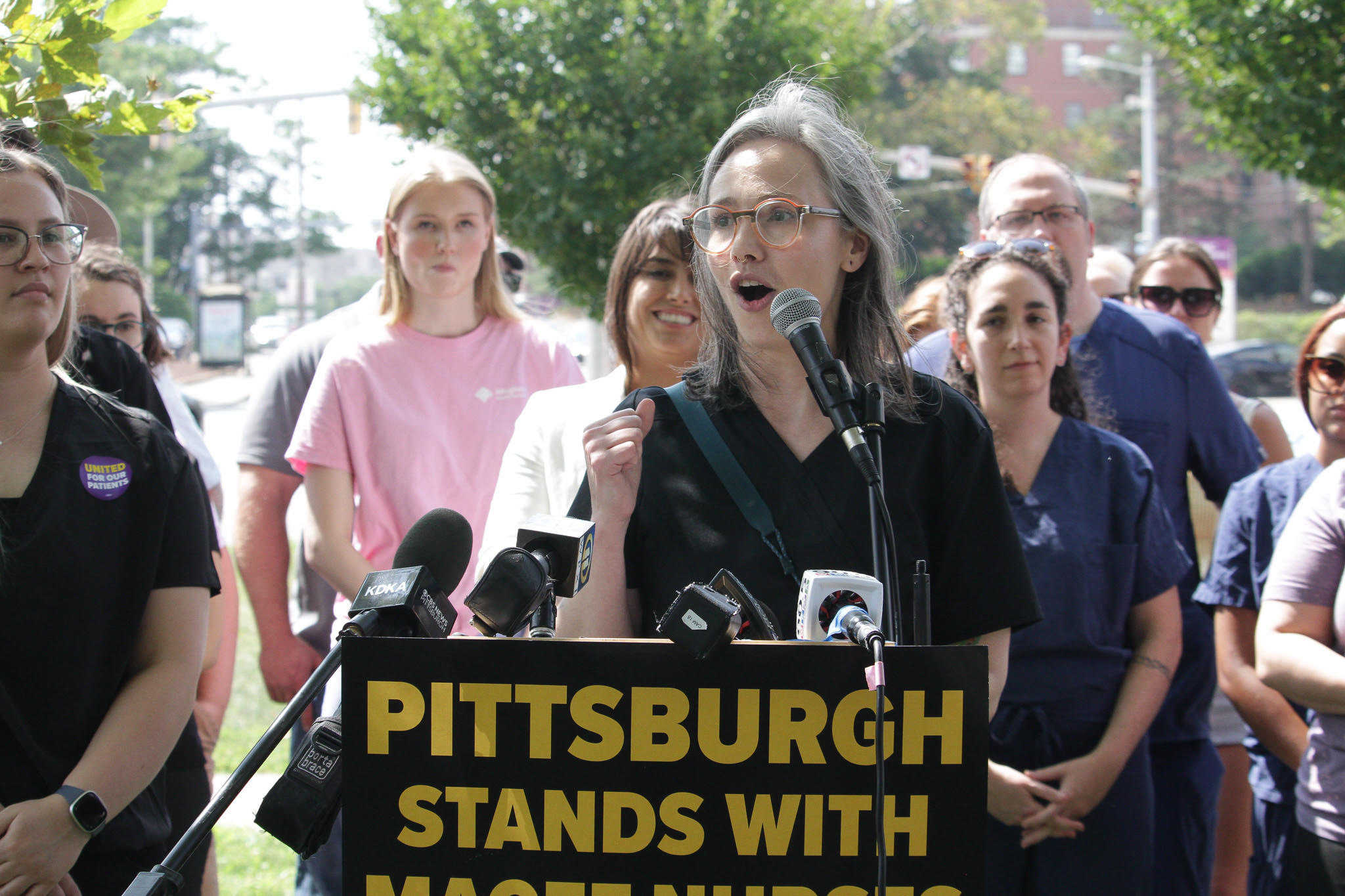Nearly 1,000 registered nurses at a Pittsburgh hospital will vote on joining a union starting Aug. 19, according to a decision from that region’s National Labor Relations Board office earlier this month. The vote, which runs through August 23, will determine whether nurses at University of Pittsburgh Medical Center Magee-Womens Hospital join SEIU Healthcare Pennsylvania.
The campaign galvanized significant local support, including an effort by local officials to gather complaints about union busting from residents.
The scheduling of the election is the latest confirmation that, so far as the National Labor Relations Board is concerned, union elections cannot be halted by the board’s lack of quorum.
Alexia Kulwiec, an associate professor in the School for Workers at the University of Wisconsin-Madison, said in an email that “Regional directors of the NLRB absolutely have the authority to conduct elections, even without a quorum of NLRB board members.”
* * *
The nurses first petitioned for a union election on May 27. They had been organizing to build support for a union since at least 2024, citing inadequate staffing levels, overwork and an opaque pay and benefit system.
University of Pittsburgh Medical Center did not return requests for comment.
“I’m passionate about providing the best quality care for my patients,” said Celia Emmons, a lactation consultant at UPMC Magee-Womens Hospital. “We want to have a seat at the table, to have input when decisions are made,” Emmons said.
In early June, University of Pittsburgh Medical Center responded to the nurses’ petition with two arguments, neither of which swayed the National Labor Relations Board.
The first argument was about whether some nurses could join the union at all. UPMC argued that senior nurses who have rotating leadership responsibilities — who make up more than 20% of the proposed unit — are supervisors and thus ineligible to vote. The regional NLRB office rejected that claim, paving the way for all 940 nurses to participate in the election; a small subset will vote “subject to challenge,” with their votes only counted if they may sway the final result.
The hospital’s second argument was over the National Labor Relations Board’s lack of a quorum, which followed President Donald Trump’s January firing of board member Gwynne Wilcox, leaving the five-person board with just two members. The medical center argued that the lack of quorum prevented the board from delegating authority to regional boards, which usually process elections.
The Pittsburgh NLRB scheduled an election without addressing the quorum issue, but other regional boards have rejected that argument. In July, the Florida NLRB office called the same argument “without merit.” Its decision cited six previous cases going back as far as 2010 that upheld regional directors’ authority to oversee elections.
* * *
The campaign also inspired the county executive of Pittsburgh’s Allegheny County, Sara Innamorato, to launch a tool helping workers report suspected labor rights violations. An Allegheny County spokesperson told Capital & Main that the county developed the “Right to Organize Incident Report Form” in response to the Trump administration’s anti-union efforts. While the county doesn’t have the same authority as the NLRB to ensure employers follow labor law, the county spokesperson said the form was a way to support and bring attention to workers’ rights.
Emmons said that University of Pittsburgh Medical Center’s anti-union efforts are “disrupting patient care” by taking nurses away from patient bedsides in favor of mandatory lectures about how unions negatively impact pay and benefits. She said she is “grateful” for the launch of the form.
The form includes a note that it is “intended for informational purposes only” in order for the office to “understand the experiences of workers expressing their right to organize,” adding that formal reports should go through the NLRB.
Emmons said that several nurses had used the form to submit complaints about anti-union activity.
For her part, Emmons is hopeful she won’t need to submit any complaints for a while. After working at the hospital for 10 years and first discussing a possible union more than two years ago, she is excited for the upcoming vote. “We’re trusted with the lives of people in our communities,” she said. “We should also be trusted to [help] make decisions that impact our patients and us as employees.”
Copyright Capital & Main 2025


 The SlickJanuary 27, 2026
The SlickJanuary 27, 2026
 Column - State of InequalityJanuary 29, 2026
Column - State of InequalityJanuary 29, 2026
 Latest NewsFebruary 3, 2026
Latest NewsFebruary 3, 2026
 Dirty MoneyJanuary 30, 2026
Dirty MoneyJanuary 30, 2026
 Featured VideoFebruary 4, 2026
Featured VideoFebruary 4, 2026
 The SlickFebruary 2, 2026
The SlickFebruary 2, 2026
 Column - State of InequalityFebruary 5, 2026
Column - State of InequalityFebruary 5, 2026
 Column - California UncoveredFebruary 6, 2026
Column - California UncoveredFebruary 6, 2026

